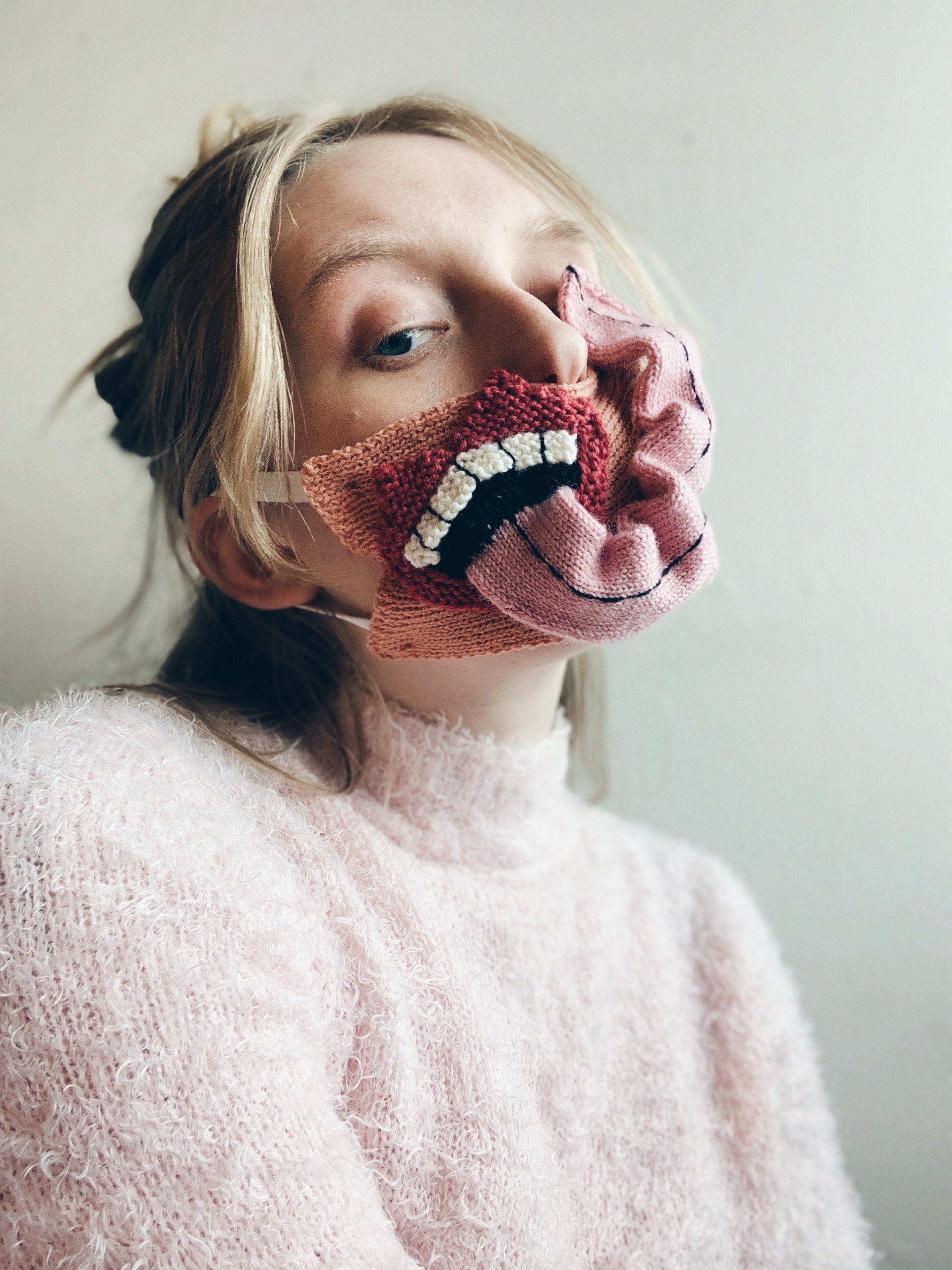
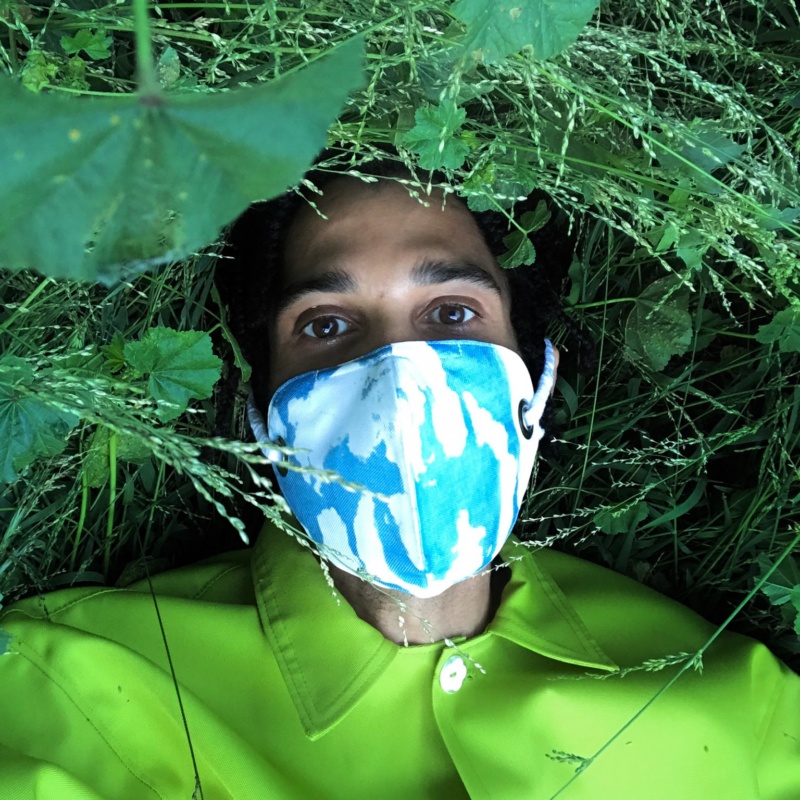
Phlemuns, Los Angeles With its elevated basics, eco-friendliness and androgynous vibes, Phlemuns has been navigating the fashion industry since 2013. Founder James Flemons believes that, moving forward, masks will be a staple component of our daily outfits. “Welcome to the new normal…for now, at least! When the pandemic first struck, before it made its way to the US, we had the idea to make masks, but I didn’t want to feel like we were using a tragedy to take advantage of people in these bleak times. But as this new normal approached and masks became a necessity, we did our part to support those in need first, by providing masks for vulnerable groups within the city of LA. Still, I knew people would want quality and fashionable options to protect themselves and others,” James explains. A now-signature cloud print, made of 100% cotton, which perfectly matches Phlemuns’s du-rag, is already available on the brand’s website.
The LA-born and raised designer has channeled the pulse of the West since his beginnings. His unique flair appeals to the next generations of icons; Lizzo, Amandla Stenberg, Miley Cyrus and Solange Knowles (his unisex label was featured in the Houston native’s “Don’t Touch my Hair” video), to name just a few. “I’d like to think I’m the people’s designer. I enjoy being in tune with what people are wanting and I believe the resources I’ve acquired here in LA have assisted me in providing this kind of service. I always enjoy custom because it takes me a step outside of where my head is and I see things with a wider scope. I’ve been doing polls on my private account to see what my true supporters want to see from me.”
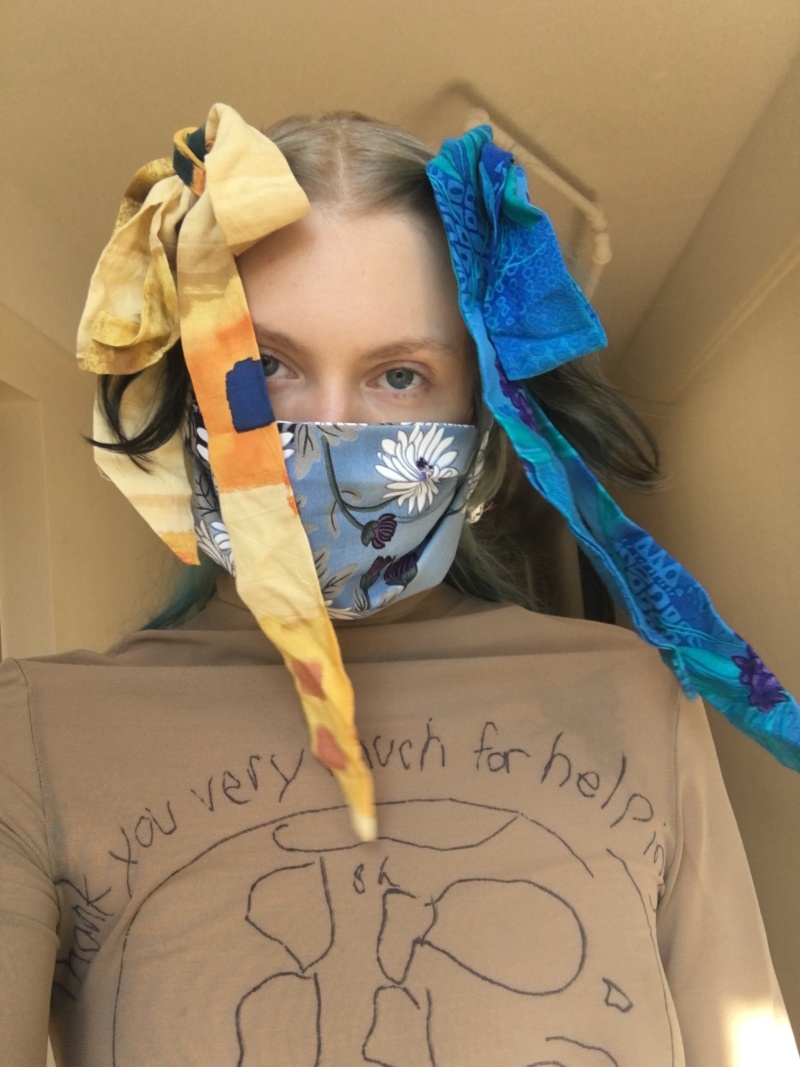
Collina Strada, New York According to Hillary Taymour, designer and founder of Collina Strada, it was just a matter of time before eco-friendly and upcycling trends became a major priority for this industry. Since 2009, the designer has proposed an approach that is both fashion-forward and mindful of environmental challenges. At the head of one of the most prominent brands in New York, she’s the fresh air of the industry. Collina Strada’s collections and shows are known to be vibrant and personal, and have embodied an ethos of renewal since day one. Consistent with her sustainable approach and “buy less” philosophy, every mask the brand produces uses fabrics from the previous collection. “It’s something we, as a brand, can do to relay how important it is to wear masks to stop the spread of the virus, while showing that it can still be fashionable,” says the New York Chinatown-based designer.
While New York is in confinement, small businesses are particularly affected. “We’ve had a ton of store cancellations and shipments sent back. Our factories are closed, and I’m not sure when we will be able to produce the next collection. Every day is a new journey and a new problem to solve,” explains Taymour. Remaining faithful to her perspective, she calls on the industry to assume its responsibilities regarding environmental issues and health imperatives. “If customers are still supporting us, we should encourage people who need help, too. Keep the good faith circular. Making masks is something we can do easily, as we have all the materials readily available.” Collina Strada is offering a mask as a free gift with any purchase on the site. Taymour knows that it is, unfortunately, the new accessory à la mode.
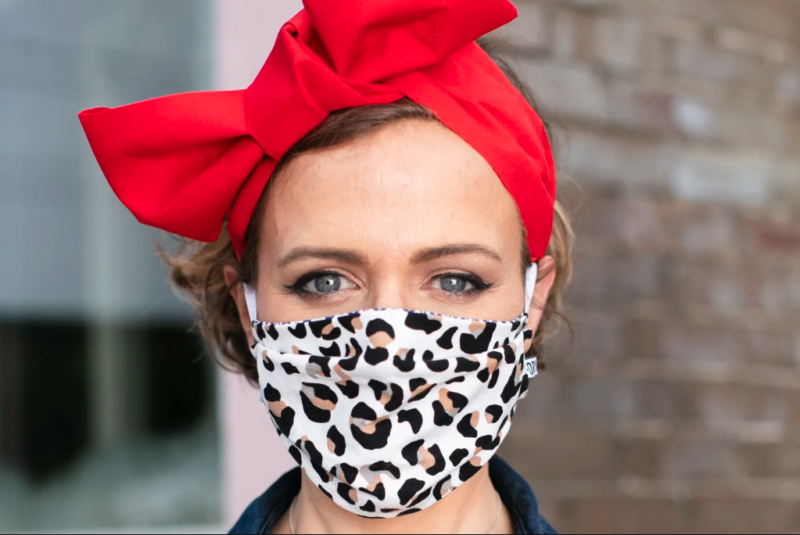
Ford Millinery, Sydney Ford Millinery’s headpieces have already made their mark in Australia. Renowned for its architectural trademark, Chantelle Ford’s work is regularly featured in mainstream national media outlets, such as Vogue, Herald Sun, and Bride. The designer says she realized quickly that wearing a mask would be the new statement. “Before COVID-19, face masks had already been a staple in many countries, such as Japan and China, and often as a fashion item. I do believe that masks may now become a household staple that is more widely-accepted in a range of countries and communities. 2020 has shown us that we don’t know what is around the corner—suffocating smoky air quality or a deadly global disease. People will want to be prepared for the unexpected future,” she says.
Following the bushfires in New South Wales in November 2019, which the country has not had time to recover from, the government has already announced that the COVID-19 epidemic will have a disastrous impact on the economy. Like many other luxury brands, the Sydney-based designer has refocused her manufacturing output toward helping to create PPE (Personal Protective Equipment) such as masks. “For many (including myself), pulling your T-shirt above your face as you briefly left the house for the smoke-filled streets during that time was the best and only option. However, despite my feeling that fabric masks would be a great option to help the wider community, I shied away from this avenue in fear of being perceived as benefitting from a disaster or caught up in any legal ramifications for not offering adequate filters, for example. Then came COVID-19. We felt that now was not a time to be timid, paranoid or to cease powering forward if we knew pleasing everybody may not be possible.” Through its “Masks 4 Mates” initiative, the company aims to gift one free mask with every purchase.
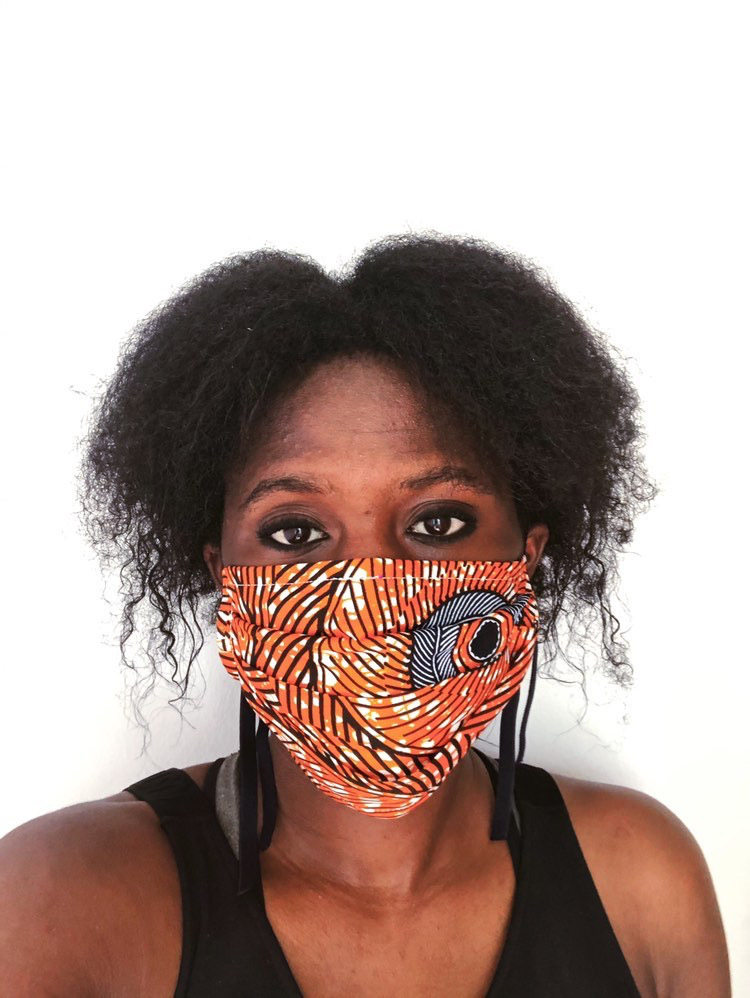
Torlowei, Lagos Patience Torlowei’s fashion line, Torlowei, has been shaking up the Nigerian fashion scene since 2006. Her work has been featured internationally and donned by personalities such as André Leon Talley, Robin Givhan, Naomi Campbell, Seyi Shay, and more, and Torlowei created the first piece of haute couture to join the permanent collection at the Smithsonian Institute’s National Museum of African Art. The current situation highlights the inherent weaknesses of African governments’ crisis management, and in particular the Nigerian government, she explains. “I believe it’s showing the cracks we have in our country. Prior to COVID-19, small businesses, which are the backbone of our economy, were already barely getting by. Since the virus, it is unlikely—despite palliative measures—that they will survive the quarantine imposed by the government. I believe that the effects of this crisis will be felt for months, if not years to come,” remarked the Enugu-born designer.
The fashion house, which is based in Lagos, is now participating in the non-propagation of the virus by creating masks. “When I started making these masks, it was purely for practical reasons—I clearly knew they were a necessity, not a fashion accessory. For that reason, we did not put as much thought or effort into the design, as we did not wish to be mistaken for greedy opportunists. Financial gain was and still isn’t the motivation but, I guess as a creative, I could not help but make some of these my own.” Torlowei uses recycled polyester yarns, linen, and organic cotton. It’s something the brand is adamant about: letting the world know of the richness of African cultural heritage.
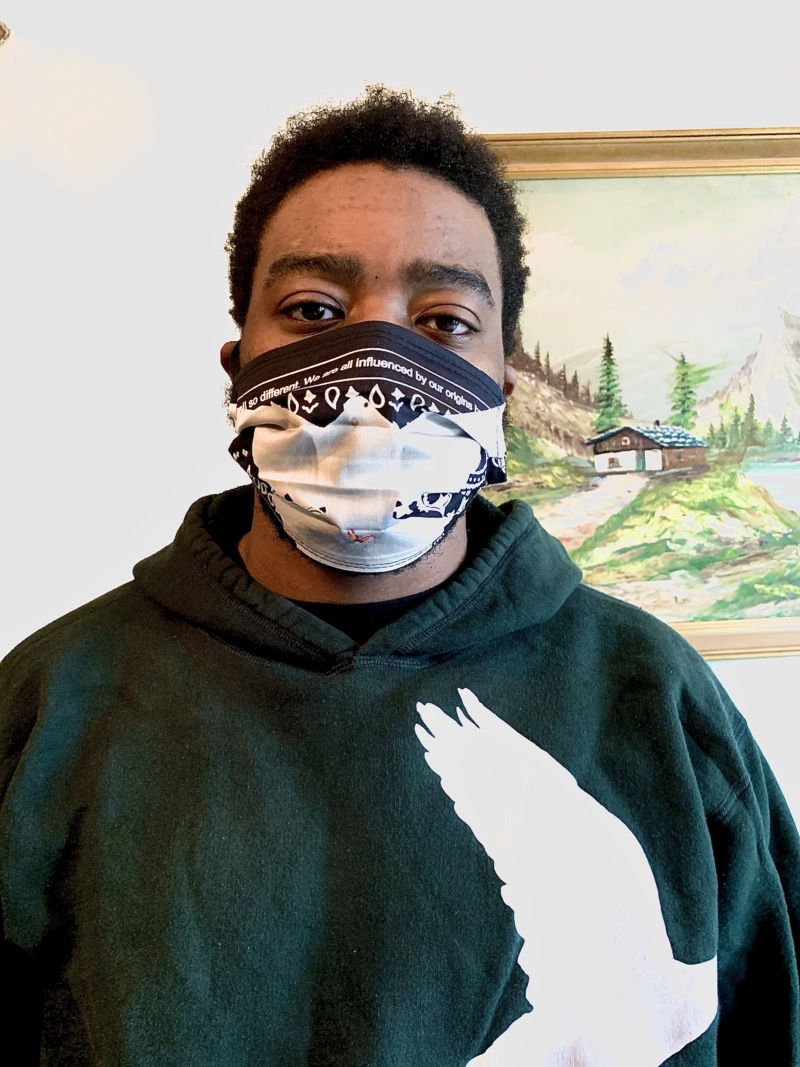
3.PARADIS, Montreal LVMH Prize-nominated label 3.PARADIS tows the line between streetwear and luxury. Inspired by juvenile rebellion, Emeric Tchatchoua was able to blend many influences together; but, after more than seven years in the fashion industry, the Cameroonian-Canadian founder is using this period of self-quarantine as an opportunity to rethink his brand and vision. “Despite the current situation being a total disaster, being confined at home is an excellent opportunity for all humans to reconnect with themselves and their loved ones. It is also a good time for us to question our current society and rethink our world. Regarding 3.PARADIS, it has allowed us to reconfigure our business to an essential fashion brand, more in tune with our beliefs and values,” states Emeric. Creating masks is part of that momentum.
With the current state of global vulnerability and uncertainty, no brand can or should be indifferent to this reverberating change, and Tchatchoua wants to be ready. With COVID-19 in front of us, helping others has to become the new normal. “Doing something useful without expecting anything in return is my way of life. So, in this turbulent time, creating custom masks to help people feel safer is totally in tune with my values and the ethics of the entire team at 3.PARADIS,” continues the Montreal-based designer. Tchatchoua is allowing himself to be transparent and putting business aside for a while. “We have turned our entire production of bandana scarves into protective face masks, as we don’t believe people need scarves at the moment. We will be giving them all away for free through our online platform and we’re looking to manufacture more in the near future.” By remaining positive, but without neglecting the impact of this crisis on his brand, Tchatchoua is working with his team on other models that will align with his disruptive, yet chic and poetic approach.
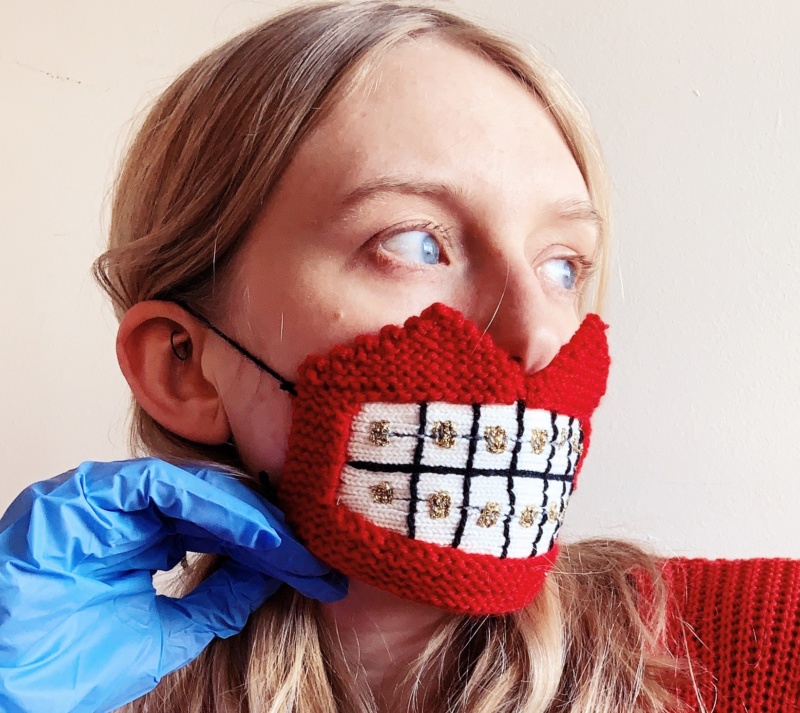
Ýrúrarí, Reykjavik Playful and ironic, Ýr Jóhannsdóttir’s masks, offering such designs as an oversized smile with braces and a long tongue like an elephant’s trunk, are all over the Internet. Though her brand, Ýrúrarí, created in 2012, the pop textile artist has used Instagram as the primary vector of her art. “My work plays with decorating the everyday and making it more fun. It’s on the edge of costume and clothing and now, masks are becoming part of it. I’ve incorporated them into my creative world,” says Jóhannsdóttir. The brand also considers concepts of recyclability, fashion and narrative. Her unusual upcycled garments with three-dimensional knitted mouths, seemingly ready-to-eat-you, have become her signature pieces, and are made from Icelandic wool.
Though not available to purchase yet (for safety reasons) Ýrúrarí’s mask concept intends to have fun and spread positivity. “I’ve just been using yarns I already had in my studio, as going out to buy yarn is not a priority. I consider them to be more like wearable sculptures; I think the paper-like gold yarn I use for braces isn’t even meant to be washed at all. They’re not for sale. Maybe, later on, I’ll put up a small exhibition and sell them as art.” The Reykjavik-based designer also acknowledges that the pandemic will not only cause harm, but will eventually highlight other economic sectors. “Since the economic recession of 2008, Iceland has rebuilt itself mostly by relying on the tourism industry and we have become overly dependent on it. I think the current crisis, with its heavy touristic revenue loss, has provided Iceland with an opportunity to innovate, be more creative and make use of our local talents and resources,” she hopes.
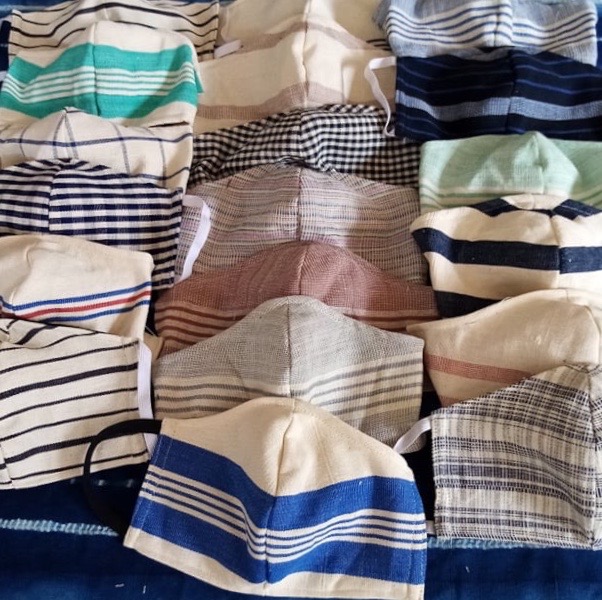
Tensira, Paris Tensira was founded in 2010 by husband and wife Hamidou Diallo and Tuulia Makinen Diallo. Their workshops in West Africa entrust local artisans with the development of linens and the brand has become the official partner of the American Red Cross in Republic of Guinea. They provide nonsurgical, reusable, and washable face masks to the local communities. “Many times during this crisis I have wished I was a nurse or a doctor and could go to the frontlines to help people who are affected by the virus. Creating the masks is how we, at Tensira, can help in this global situation. The Red Cross felt like the perfect partner to make sure the help goes to where it is the most needed,” Tuulia says. Regularly solicited for capsules and partnerships, including a very prominent collaboration with French former model and Chanel muse Ines de la Fressange, the Guinean-Finnish couple has created a brand that combines the best of their respective backgrounds.
Already acclaimed for its sustainable approach, Tensira is reacting to COVID-19 by donating 500 masks a week for at least the next month. “I think there is not one person or brand that this situation does not affect. First of all, of course, we are worried about our loved ones, colleagues, collaborators in France and in Guinea and all our clients around the world. This global crisis puts things to a perspective and what we at Tensira wish for everybody is to overcome this. This situation makes us more united as a team and with our clients, and we are sure to come out of together, stronger.” TENSIRA and the Red Cross share the same priority of helping those affected by the crises with creativity, commitment and respect.

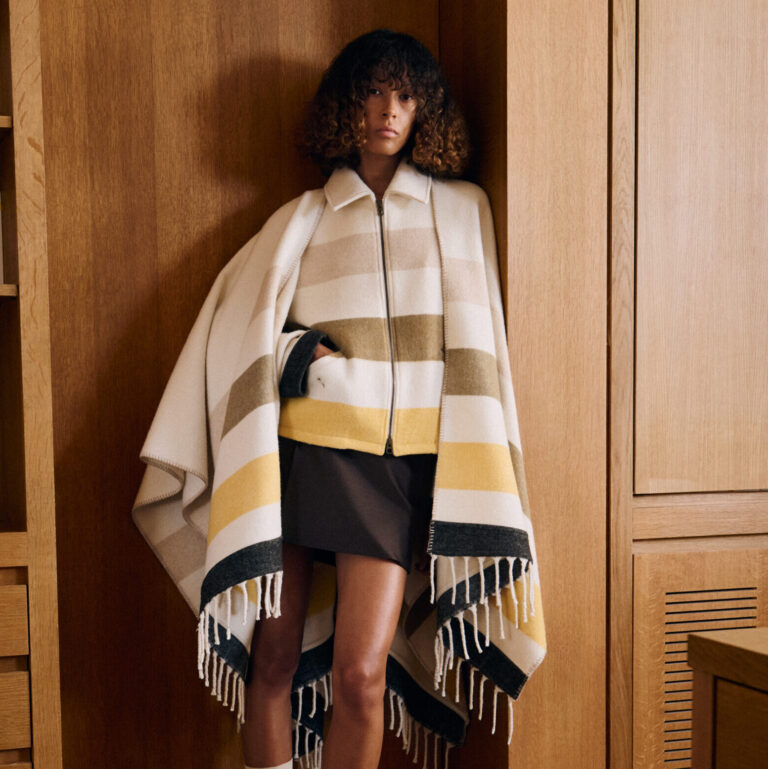
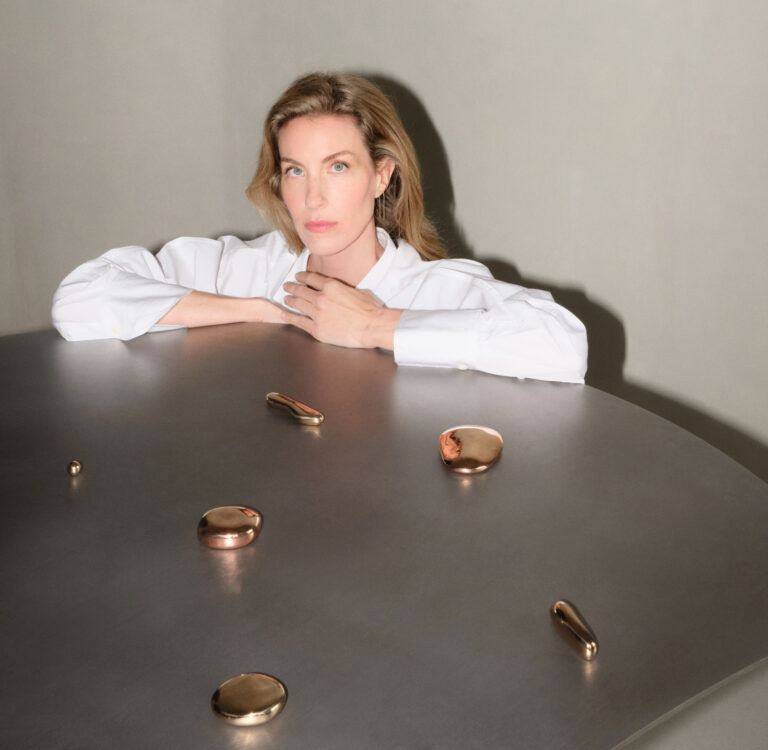
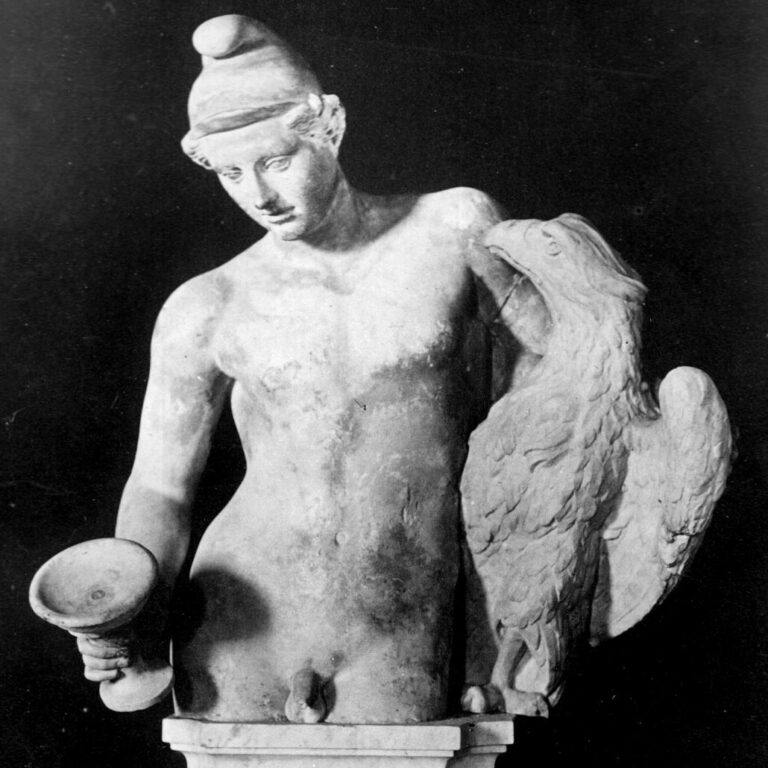
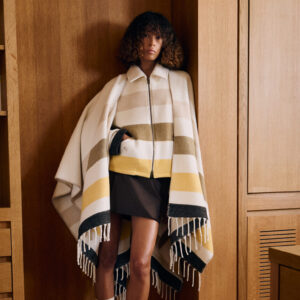





 in your life?
in your life?

